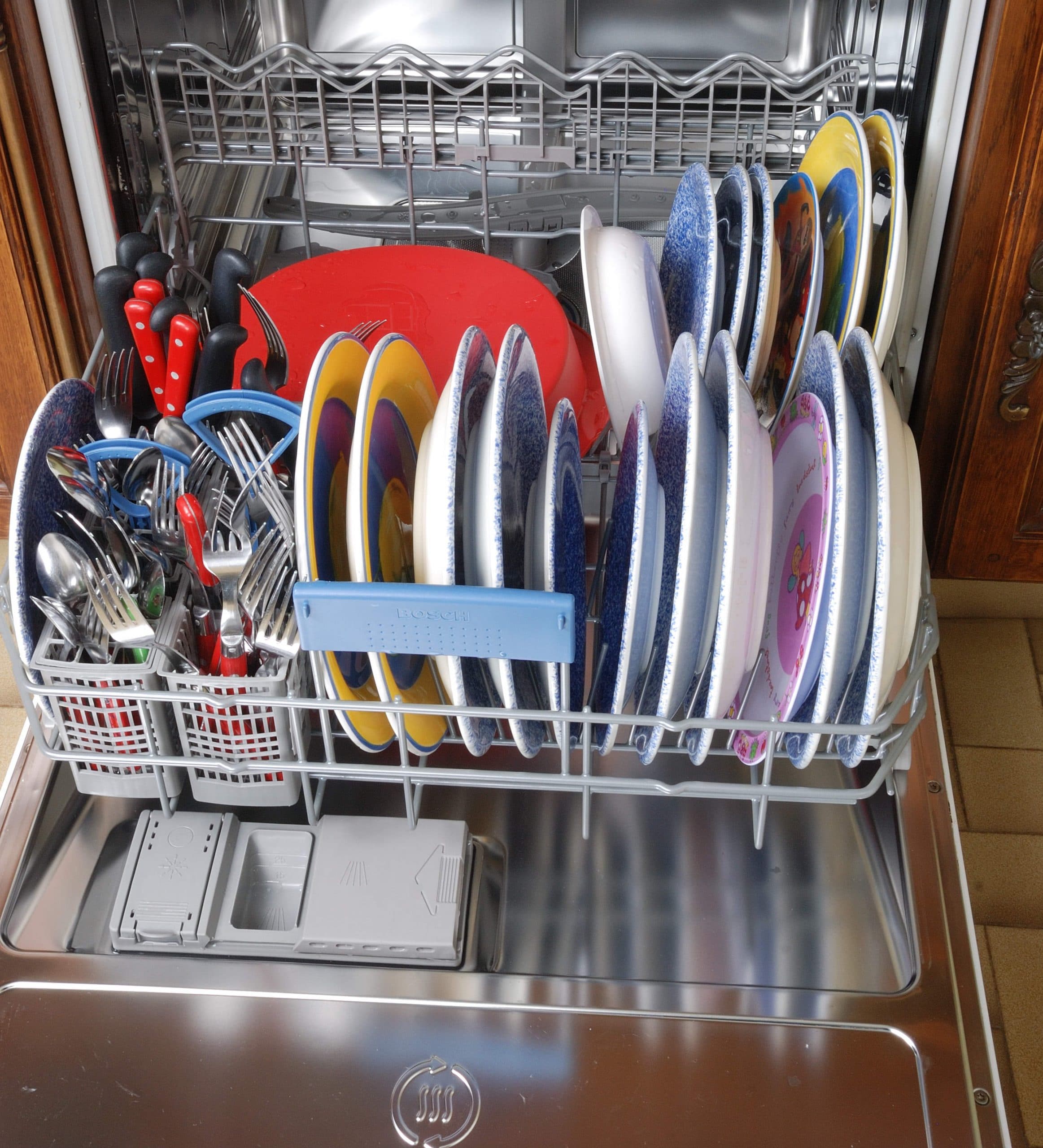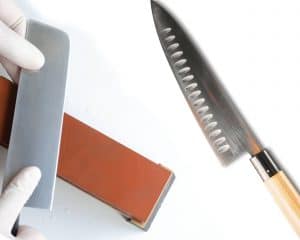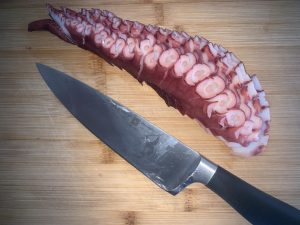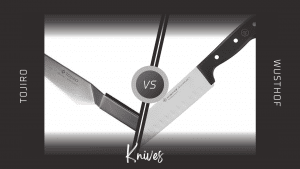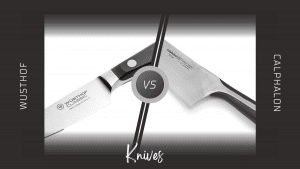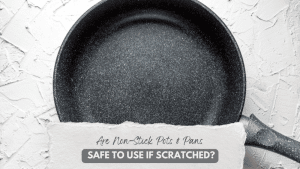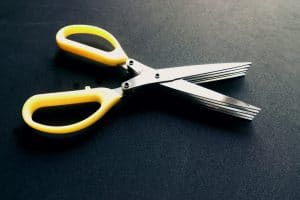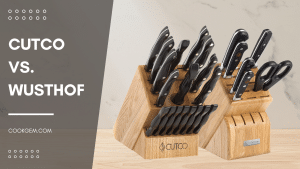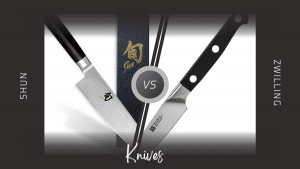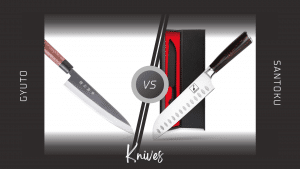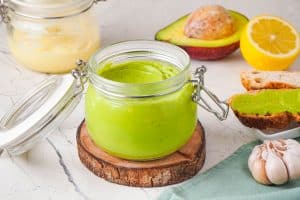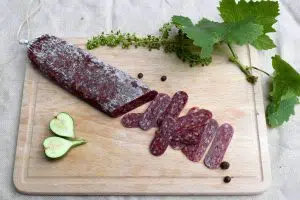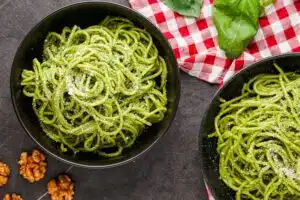Knives In The Dishwasher? Everything To Know
Important Note: When you buy through our links, we may earn a commission. As an Amazon Associate we earn from qualifying purchases. Content, pricing, offers and availability are subject to change at any time - more info.
Dishwashers are the ultimate sanity and time savers. You try to fit everything from spoons to pots in the dishwasher if you are anything like me. However, the complexity arises when it comes to knives. Should you put them in the dishwasher? Do they get blunt and rusted? I mean, I would like to preserve my blades, so what do I need to know about knives in the dishwasher?
Washing knives in the dishwasher destroys their quality. Dishwasher detergent causes rust and corrosion to them. The abrasive nature of dishes rubbing and banging leads to reduced sharpness, causing blunt knives in the long run. It is also unsafe to unload a dishwasher with blades inside.
If you want to know all about why you should keep your precious knives away from the dishwashing machine and what happens if you do run them through the cycles, then you are at the right place.
What Happens If You Put Knives In The Dishwasher?
Here are some things that happen to your knives in the dishwasher which hurt your blades over time:
- There is a lot of humidity that the knives cant handle. The high temperatures and excess moisture in the machine causes damage to steel blades (especially carbon steel). They tend to rust. The handle can also get damaged, mainly if it’s wooden. Wood should not be in moisture for too long – that’s why you don’t put your wooden spatula in the dishwasher.
- The turbulence jostling the cutlery around causes the knives to knock against all the dishes around it. The abrasion damages the edge and quickly ruins the blades. Ceramic knives are brittle and therefore at higher risk of damage.
- The dishwasher detergents are not only a risk to knives but to the machine itself. Dishwasher detergent is abrasive, and depending on the type you use, the detergent can cause corrosion and rust. Excess soap and foam will lead to more moisture – again, leading to damage.
- If you are not careful and specific about where you place the knives within the dishwasher, they could scratch your other dishes such as pots, plates, cups, and even the inside of the actual machine. Besides all that, the person unloading could easily get cut.
Are Stainless Steel Knives Dishwasher Safe?
Stainless steel gets its name because of its ability to resist corrosion. That means it does not get rusted even in the dampest environments. Stainless steel contains chromium oxide, which is a barrier that heals itself if scratched or otherwise hurt.
Here is the complexity; stainless steel can rust if it is exposed to acid or base solutions. Dishwasher detergents are generally base solutions, and that is why they do get rust spots from the dishwasher.
Alternatively, some knife blades are made from hard steel, which preserves their edge but rusts faster. In this case, it’s important to note the quality of the knives you purchase because if they contain hard steel, your blades will rust either way, even with regular hand washing.
Contrasting Materials Cause Damage In The Dishwasher
There are always more reasons why your knives get damaged in the dishwasher. Besides all the other points mentioned above, another significant cause of damage to your blades is the contrasting cookware materials.
When you put stainless steel and silver-plated cutlery together, the combination of the two, along with the dishwasher detergent, causes a reaction that can damage both types of your flatware.
The same goes for stainless steel and aluminum cookware. The combination causes the reaction and damages both types of dishes. Besides, you should never put those materials in the dishwasher anyway.
Very often, there is a combination of stainless steel knives with beautiful silver-plated spoons and another cutlery. The reaction with the detergent damages both steel and silver – knives first. At the same time, the blades were not supposed to be in the dishwasher in the first place.
Can Butter Knives Go In The Dishwasher?
Your regular daily butter and dinner knives are safe to pack in the dishwasher. Unlike the sharp chopping and serrated knives, they don’t tend to get damaged in the machine. Butter knives are typically made from silver-plated material, which will not have a problem in the dishwasher unless there is stainless around it or next to it.
The sharp edge is not used for precise chopping, and you won’t typically require it to cut hard foods; therefore, slight bluntness isn’t a significant issue if that happens in the dishwasher cycle.
How To Pack Knives In The Dishwasher
Manufactures always recommend packing your knives downwards in the dishwasher while everything else can be facing upwards in the cutlery holder.
The primary reason for this is to avoid anyone getting hurt during loading and unloading the machine.
While that is something to keep in mind, it doesn’t include sharp chef’s knives that you use for chopping and slicing. It also doesn’t include the stainless steel knives that can get rusted and blunt in the dishwasher.
In the instance that you are short on time and need to put your knives in the dishwasher or don’t have the capacity in any form to wash a single item by hand (say you are a new mum or very ill). It would be okay for you to clean your knives in the dishwasher.
Remember not to make a habit of it and always keep the blades facing downwards. Make sure to remove the knives as soon as the cycle is complete and ensure that it is completely dried.
If your knives have wooden handles, keep in mind that over time with the moisture and humidity from the dishwasher, the wood will split.
The main points you need to keep in mind about knives in the dishwasher are that they shouldn’t be there. They are prone to corrosion from the damage of abrasion, detergents, and reactions that happen during wash cycles.
Your butter knives and regular dinner silverware will not get damaged in the dishwasher unless mixed with stainless steel blades, and a combination with the detergent causes a harmful reaction.
